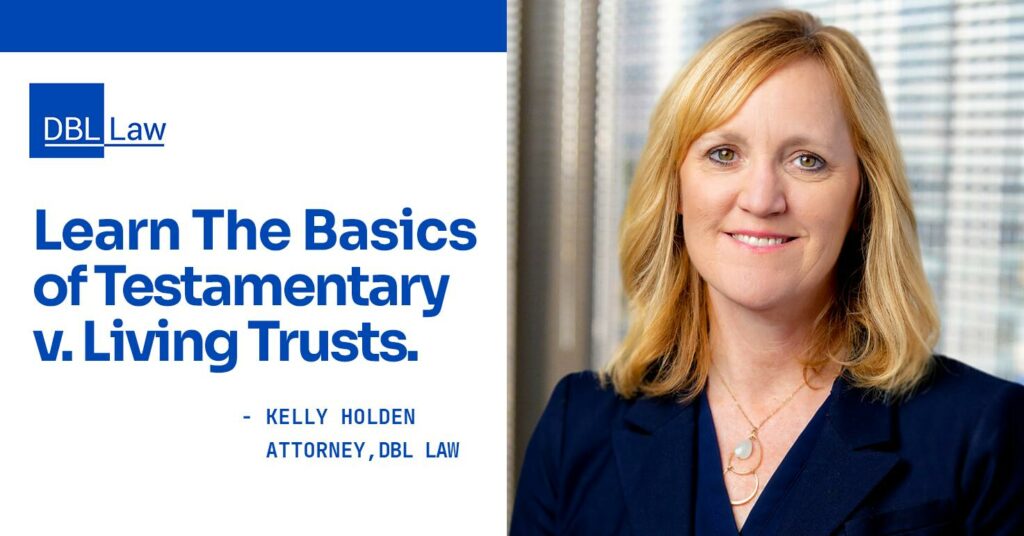
Many families use one of two type of trusts, particularly when there are minor children. A testamentary trust is created through a person’s Last Will and Testament. However, the will and the trust do not go into effect until the testator’s death. Whereas, a living or revocable trust, as the name implies, is created when the settlor is alive. Once the trust is funded, the beneficiaries may begin receiving benefits immediately or at a later time, but most chose to do so upon death. While the trusts are similar, they have some distinct differences.
Probate Avoidance
A testamentary trust does not avoid probate. Because the trust is funded after the settlor’s death, their will must be probated before the trust can be created and funded.
On the other hand, the assets in a living trust pass to the heirs according to the terms of the trust. The assets do not typically pass through probate if funded properly. This is the primary advantage to living trusts as probate takes time and involves additional legal fees, which can be significant.
The one disadvantage to a revocable trust is that you must fund it now, meaning you must re-title any real property so that the trust owns it, retitle beneficiary forms, and make any other accounts payable on death to the trust. It does require some work now and if the grantors miss any accounts, property may still end up in probate. Therefore, it is imperative to correctly change all beneficiaries and ownership to assets to the trust upon death.
Revocable Trusts
Both testamentary and revocable trusts may be amended or changed at any time during the grantor’s lifetime but both become irrevocable upon death of all grantors. Both also allow the grantors to set for the terms of the trust agreement such as successor trustees and beneficiaries of the trust. Both are useful to allow the management of money while children are minors and/or young.




